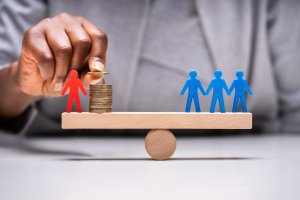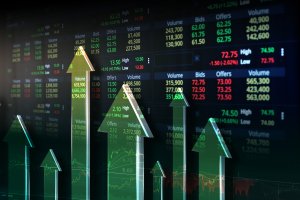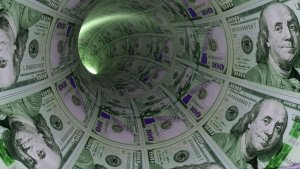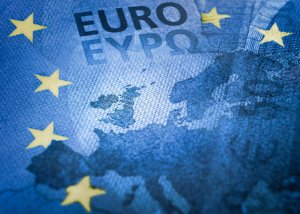Carl Icahn is at it again. On Oct. 9, armed with about 1% of Apple’s outstanding stock, the hedge-fund activist published an open letter to Apple CEO Tim Cook, urging him to accelerate the company’s stock repurchases by making a tender offer. I hope Cook doesn’t listen, because I think it would be bad for Apple, all of its employees who have contributed to its success, and the American economy. But judging from Cook’s past actions, I fear he will do Icahn’s bidding.
In August 2013, Icahn bought more than $1 billion worth of Apple shares. As he tweeted, he then had a “cordial dinner with Tim” the following October, during which he “pushed hard for a $150 billion buyback.”
Icahn later reduced his buyback request to $50 billion, and in April 2014 Apple’s board approved a $30 billion program to be carried out by repurchasing its shares on the open market — either by just buying shares outright or doing it indirectly via accelerated share repurchases. That was on top of a $60 billion buyback program authorized a year earlier, along with up to $40 billion in dividends. Apple’s stated intention was to carry out this $130 billion distribution of corporate cash to Apple shareholders between August 2012 and December 2015.
Since August 2012, Apple has been on a buyback binge, expending a total of $53 billion on stock repurchases through the third quarter of 2014, the last figures it has disclosed. But with his open letter to Cook, Icahn has let the public know once again that however much Apple buys back, he feels it has the current cash, borrowing capacity, and long-term profit prospects to do much, much more.
Apple is a company with phenomenal products and profits. But by jumping on the buyback bandwagon — something Steve Jobs refused to do — Apple’s current top management has shown the same lack of strategic vision that has undermined many once-great American companies, including Cisco, HP, IBM, Microsoft, and Motorola. As I explain in my recent Harvard Business Review article, “Profits Without Prosperity,” open-market repurchases that represent the vast majority of buybacks in the United States reward value extraction and undermine value creation.
Here’s an update of some key numbers in that article: In 2004-2013, 454 companies in the S&P 500 Index that were publicly listed over the decade expended $3.4 trillion on buybacks (51% of net income) and another $2.3 trillion on dividends (35% of net income). As is clear by the increasing amounts that U.S. companies, including cash-rich Apple, are borrowing to do buybacks, a large chunk of profits that is not spent on repurchases is being held abroad to avoid U.S. corporate taxation. All of this adds up to profits without prosperity in the United States.
Buybacks done through tender offers may be good for a company and the economy — when their purpose is to ensure that control over the firm’s resources remains with owner-managers who have the ability to identify growth opportunities and are committed to pursuing them. Henry Singleton, who presided over Teledyne in the 1970s, and Warren Buffet, Berkshire Hathaway’s legendary leader, are exemplars. Carl Icahn is not.
Unlike Singleton and Buffet, Icahn makes it abundantly clear that he is only interested in Apple making a tender offer for it shares in order to double their already-high price. (Since the beginning of September, Apple’s share price — adjusted for the 7-to-1 stock split that Apple did last June — has been the highest in the company’s history.) After Apple does its pump, Icahn Enterprises will do its dump.
Of Apple’s $53 billion in buybacks, $25 billion have been direct open-market repurchases (DOMRs), $26 billion accelerated share repurchases (ASRs), and $2 billion retired shares deducted from employee stock-based compensation to pay withholding taxes. Here’s how the first two work:
DOMRs: Apple repurchases stock on the open market on strategically chosen dates under SEC Rule 10b-18, presumably in amounts up to its daily “safe harbor” limit, currently $1.5 billion. It doesn’t have to disclose the dates on which it makes or has made the repurchases; it only has to report the total amount made each quarter
ASRs: Apple contracts with an investment bank to short its stock, enabling the company to retire in one fell swoop the entire amount in the contract. The bank then does the actual repurchases on the open market over time (in the case of Apple, nine months for the first $2 billion ASR and 12 months for each of two later $12 billion ASRs).
Whether done as a DOMR or ASR, the purpose of such buybacks is to give manipulative boosts to a company’s earnings per share (EPS) to help drive up its stock price. Executives can use them to increase their gains from stock-based pay.
The problem for Icahn as an outsider is that he cannot know when Apple is actually doing a DOMR or ASR. (If he were somehow privy to this inside information, it would be illegal for him to trade on it). The same applies to pension funds and mutual funds, the latter of which Icahn believes are under-invested in Apple.
He hopes that a highly visible $100 billion Apple tender offer at a price premium would convince fund managers to load up on Apple stock, helping to fuel a buying binge that would rapidly raise its price to over $200, adding in excess of $5 billion to his wealth.
What do Icahn’s machinations mean for Apple as a company that directly employs 85,000 people worldwide and for the United States as a nation that has invested in the physical infrastructure and human knowledge that have enabled Apple and other high tech companies to emerge, grow, and prosper? Massive buybacks rewards parties who have contributed the least to Apple’s products and profits. Icahn has contributed absolutely nothing to Apple’s success; nor have its public shareholders in general.
The only time in its history when Apple raised funds on the stock market was its 1980 IPO, which provided it with $97 million. In just the past two years, through buybacks, Apple has “returned” $51 billion to financial interests — the vast majority of whom never invested a penny in the productive assets of the company.
What, then, should the world’s richest company do with all those profits? I asked precisely that question in a paper, ” Apple’s Changing Business Model,” that I published in September 2013, before Icahn had begun to dictate Apple’s financial policy. (Another hedge-fund activist, David Einhorn, was then playing that role). My coauthors and I argue that Apple should be returning profits to workers who have invested their time and effort into generating its products and to taxpayers who have funded the investments in the physical infrastructure and human knowledge so critical to Apple’s success.







